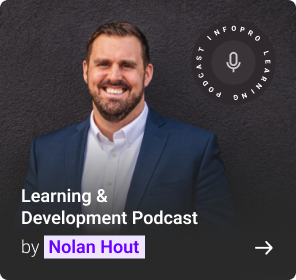Leadership isn’t about titles or authority—it’s about behaviours. The way we listen, adapt, collaborate, and inspire. And while we often look to business books and executive courses for leadership wisdom, some of the most powerful lessons are ones we knew instinctively as children.
A recent conversation with a client reminded me of this. We were reflecting on how we evolved our workshops, moving away from simply telling people what leadership should look like and instead creating spaces for play, creativity, and self-reflection. The shift helped leaders connect with what leadership feels like, beyond just theories and frameworks.
It reinforced something I’ve believed for a long time: the best leaders don’t take themselves too seriously. They stay playful, curious, and open—just as children do.
Playfulness: Leadership Doesn’t Have to Be So Serious
Children approach challenges with play. They test, experiment, and adjust, learning as they go. But as adults, we often resist this mindset, seeing leadership as something that must always be serious and structured. The problem? Fear of being wrong stifles creativity.
Great leaders create environments where people feel safe to try, fail, and try again. Playfulness isn’t about being careless—it’s about being open to discovery.
Leadership Insight:
- A playful approach fosters innovation. Leaders who encourage experimentation get better solutions.
- Humour reduces fear. People engage more when they don’t feel like every decision is high stakes.
- Play builds connection. People trust leaders who bring energy, not just expertise.
Leadership Challenge: Where can you bring more play into your leadership? Maybe it’s in how you run meetings, approach problem-solving, or invite new ideas.
Curiosity: Asking More Questions Than Giving Answers
Children don’t assume they have all the answers. Instead, they ask why—relentlessly. They challenge assumptions and explore possibilities without fear of looking uninformed. Yet many leaders feel pressure to provide solutions immediately, often at the expense of deeper understanding.
The best leaders lead with questions, not just answers. They stay curious about their teams, their challenges, and their own growth.
Leadership Insight:
- Asking great questions creates better conversations.
- Staying curious makes leaders adaptable—what worked yesterday might not work tomorrow.
- Learning is more valuable than knowing. Expertise is temporary; the ability to learn is timeless.
Leadership Challenge: Next time you’re tempted to give an answer, pause. Ask three more questions first.
Emotional Honesty: Leading with Authenticity
Children don’t filter their emotions—they express them. If they’re uncertain, frustrated, or excited, they show it. As adults, we often suppress emotions in professional settings, believing that strong leadership means maintaining composure at all costs.
But real leadership isn’t about pretending. It’s about emotional intelligence—understanding, managing, and leveraging emotions to build trust and engagement. The leaders who succeed during change aren’t the ones who act invulnerable; they’re the ones who create space for real conversations.
Leadership Insight:
- Encourage openness. “What’s on your mind? What concerns do you have?”
- People trust leaders who are real, not those who perform confidence.
- Emotions drive engagement. Ignoring them doesn’t make them disappear.
- Authenticity creates loyalty—teams connect with leaders who show up as themselves.
Leadership Challenge: Before your next big conversation, ask yourself: Am I reacting to emotions, or responding to them?
Resilience: Getting Back Up After a Fall
Watch a child learning to walk, and you’ll see resilience in action. They stumble, fall, and get back up—without overthinking it. They don’t see failure as a reason to stop; they see it as part of learning.
In leadership, mistakes and setbacks are inevitable. But the leaders who succeed aren’t the ones who avoid failure—they’re the ones who recover quickly and adjust.
Leadership Insight:
- Failure isn’t the problem—fear of failure is.
- The ability to adapt is more important than the ability to predict.
- Leaders set the tone. If you normalise learning from mistakes, your team will too.
Leadership Challenge: Instead of asking “How do I avoid failure?”, ask “How do I learn and adapt faster?”
Inclusion: Seeing the World Without Bias
Children don’t start with preconceived notions about people. They ask, listen, and absorb information without immediately dismissing new ideas. They accept differences, embrace new perspectives, and collaborate naturally. Over time, societal influences shape biases. Great leaders challenge their own assumptions: they actively seek input, remain open to new ideas, and value the perspectives of those around them.
Leadership Insight:
- Listening is more powerful than talking.
- Challenge assumptions about people’s capabilities.
- Openness to different viewpoints fosters stronger, more creative teams.
- Lead with a mindset of learning from others, rather than assuming expertise.
Leadership Challenge: The next time someone challenges your thinking, resist the urge to defend your position. Instead, ask, “What can I learn from this perspective?”
Leading with Play, Curiosity, and Authenticity
The best leaders don’t lose the qualities they had as children—they refine them. They bring playfulness into their work, stay curious about the world, and remain open to new ways of thinking.
- Keep a sense of playfulness to keep creativity alive.
- Stay curious to remain adaptable and open.
- Lead with authenticity to build trust and connection.
So, the next time leadership feels heavy, ask yourself: What would happen if I approached this with a little more play? A little more curiosity? A little more of my real self?
You might just find that the more fun you have, the better leader you become.

Author
Cecilia is a senior learning and development professional with nearly two decades of experience designing and delivering impactful training across diverse industries (technology, contact centers, retail, care). Her background includes education, advertising sales, and corporate training management. A former learning and development leader at a major airline, she excels in the full learning cycle, driving continuous improvement and innovation. Her expertise spans onboarding, employee experience, leadership development, talent management, culture change, and blended learning solutions. Bilingual in English and Spanish, Cecilia is passionate about diversity, communication, and collaboration in multicultural environments.





